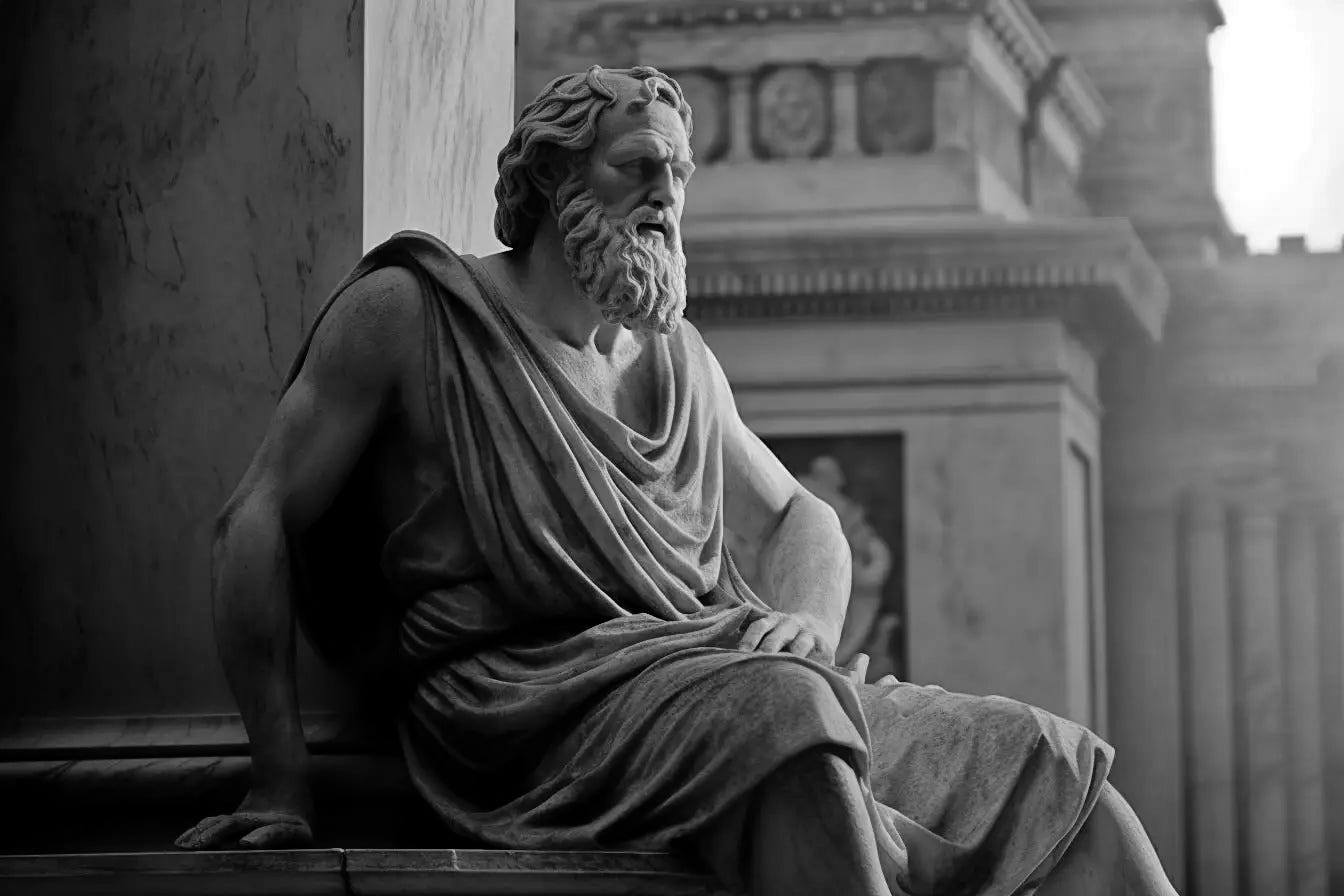Wave 1
When the first signs of the tide of thinking, arose
in a place and time so far away,
Islands of cities, and of understanding;
Nature’s origin, called Arche, matured in prose.
“Water”, said Thales, “Apeiron”, his pupil,
Referring to infinite, unlimited void,
“Not humanly possible, unwarranted claims”,
as Xenophanes claimed: so knowing is futile.
A river of thought, then, inspired Heraclitus,
To see everything always in flux,
The irregular ordered by Logos, in Kosmos,
And logos, in us, to confront that what meets us.
So change is apparent and opposites needed,
For nature to be, and it to pertain,
Not so! Eleatic Parmenides posits,
What is, is alone, always has, is completed.
To still inclose change and presence of life,
Anaxagoras and Empedocles joined our forces,
Reality now, is a mixture of elements,
Ordered by Nous, or by dialectical strife.
All this, a pre-Socratic force of philosophical thought:
Inquiring the irrational outside world.
Waves of explanations, new conceptions,
In search for order, in where lies naught.
Wave 2
The tides and stakes rose now new heights,
If the world is irrational, then what am I?
“““Know theyself”, said Delphi,” said Socrates”, said Plato.
Yes, puzzle yourself to whom one cites.
Humans became the centre of enquiry,
Postponing all material truths,
Is there a learning soul, imprisoned in us:
if rationality is, is it us in totality?
Like Socrates’ questions swept up the seas,
So Plato’s soul motivates our desires,
In conflict, in war, within us, ourselves,
Reason loves wisdom, in full - no degrees.
It clashes with needs for food, drink and sex,
spirit acting as an ally of reason,
Yearning for seeing beyond what is seen,
Reaching for Forms with Good at its apex.
Still, the sad strange prisoners inside the cave,
“are like us”, so we are:
bound to beliefs, not true knowledge,
hope beyond reach is what Plato gave.
This Form, this ideal, itself for itself,
Does it help to know how to act?
Aristotle, of this unconvinced,
Made name and wrote an Ethics himself.
In this, he proclaims our ontic inner voice:
before action, a thinking -always- is present,
because this is our virtue: to find the just mean,
It is in our power: Aristotle as proto “pro-choice”.
Still with me, feeling the vibes?
While oceans of thought spreading around,
Our ancient thinkers reached to the point
of relativism, sedimented in dogmatic tribes.
Wave 3
But wait, suspense judgement, before further concessions,
Aristotle’s method is stronger than us,
Humans can reason each way and against,
No knowledge obtained: confine facts to impressions.
This is Pyrrho’s sceptical stance,
No doctrines to follow, in thinking that is,
In ethics, however, is habit the order,
conventions, no foundations, are there to advance.
“Still, these constrain my perpetual quizzing,
as is the purpose of being alive!”,
“Be free, of áll social constrains!” barked
Diogenes, the cynic in his dog-like living.
Both sceptic as cynic conceptions of ethics,
Entail a certain retreat in yourself.
This is not “good life” (might be a start),
out and against arose Hellenistic dogmatics:
Wave 4
Before conceding to clerical ages,
with thought regulated by church and by sin,
There are two thinking schools,
I need to inclose on these pages.
Materialistic, both are, out this they deduce,
Ethics: oughts out of ontics:
An atheistic train of thought, let’s follow,
see if it has any practical use.
First, the neutral Epicurean conjugation,
of Atoms, intermixed with Void:
Innocence, reasonless, alogos sensations,
human presence: a mere temporal configuration.
While living: attend, be of active attention,
truth is not thought, it is being received,
To be is: be prudent: choice and avoidance,
from pain towards pleasure, more is pretension.
The Stoics, however, see input of ratio,
this not as an optional trade,
Because minds cannot not rationalise,
for self-preservation, it’s on human bestowed.
What is, is not void, but infinite matter,
one - divisible by logos, but see:
Nothing above and beyond. Forms, Universals:
They are just like this poem: philosophical chatter.
Know thyself and ask thyself:
Am I a Platonist or an Aristotelian?
Am I a sceptic, a cynic, an Epicurean?
Or am I, Stoic, and therefore, I think.


